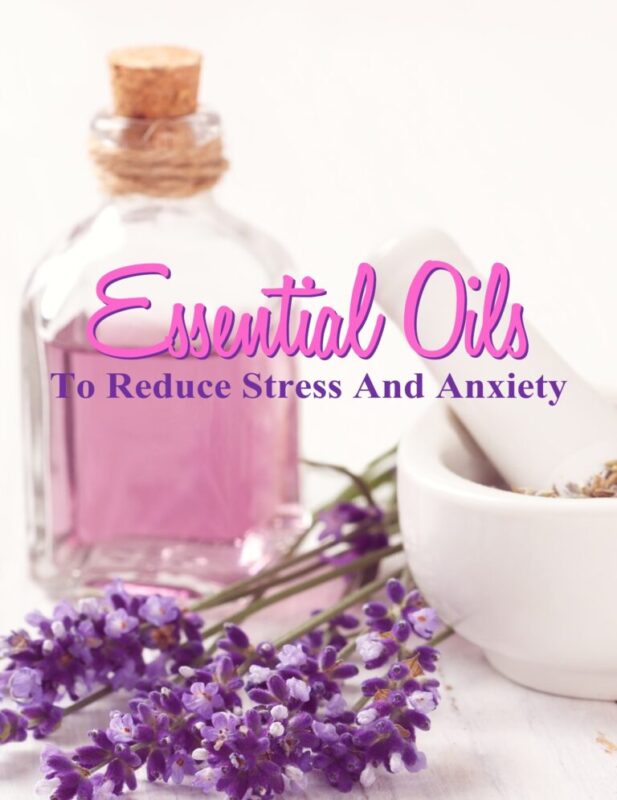Essential Oils, Health
Reduce Stress and Anxiety
Introduction
Essential oils – concentrated oils extracted from plants – are a pretty big conversation topic right now in just about every field that touches on human health and wellness. From food packaging and preparation to sanitization and sports medicine, but perhaps mostly mental wellness, there is a huge and growing body of research on how to essential oils benefit human health.
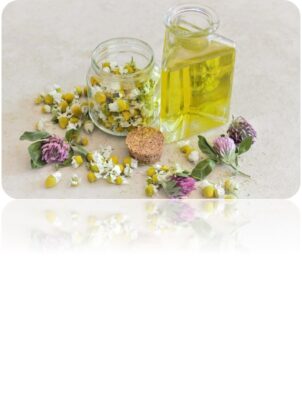 For all of their other amazing properties, much of the research – and most of the marketing – related to essential oils has been about their potential ability to help people reduce stress and anxiety, mostly through aromatherapy, massage, or a combination of both.
For all of their other amazing properties, much of the research – and most of the marketing – related to essential oils has been about their potential ability to help people reduce stress and anxiety, mostly through aromatherapy, massage, or a combination of both.
There’s a lot to talk about when it comes to essential oils, and this article is going to try to address some of the key things that you need to know to get started using essential oils for help with symptoms of anxiety and depression.
What Are Essential Oils
Essential oils are highly concentrated extracts from plant matter. They have been around for use as perfumes for thousands of years because concentrated plant juices mean concentrated plant smell. That’s also why it’s used for aromatherapy today. Concentrated plant juices also mean concentrated plant chemicals and nutrients. For these reasons essential oils are also increasingly being explored for their use in health and wellness.
Most essential oils are alcohols. When we hear “alcohol” many of us will jump to the kind that people drink, but the term actually refers to a molecular structure that has a wide variety of properties. That’s why it’s not safe to drink some essential oils – but that will be covered in greater detail below.
Other chemical terms used to describe essential oils are “esters” and “aromatics.” Ester, like alcohol, just refers to a molecular structure. This article won’t go quite in-depth enough to require a further understanding of this term.
The term aromatic – think “aroma” — has to do with molecular structure as well but for our purposes just means that the chemical is easy to smell. The term “aroma” tends to have positive connotations, which shouldn’t necessarily be carried over to the term “aromatic.” Most of the essential oils discussed in this article – and most essential oils in general – have smells that most people enjoy. That does not mean that the chemistry of essential oils and aromatics somehow mean that everyone enjoys the smell of every essential oil.
Most essential oils are extracted from the plant through distillation or expression, according to the National Association for Holistic Aromatherapy (NAHA).
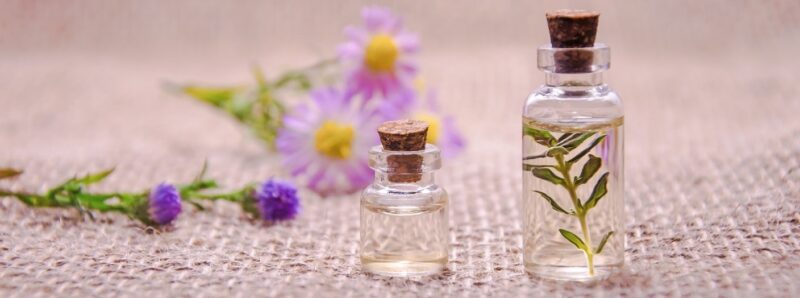
Distillation involves using water and heat in a closed container to allow liquid to evaporate out of the plant. This vapor is then collected and condensed back into a liquid. While essential oils may seem like the hot new thing, they have been extracted this way for thousands of years.
Expression involves perforating the skin of a fruit, usually a citrus fruit, and extracting the juices before letting them separate into oils and water.
Not only fruits or fruit-bearing plants have essential oils, however. This creates a huge variety in essential oils. One a given plant, a fruit’s skin, seeds, and leaves may all be put through different extraction methods to extract different essential oils. In the case of flowering plants, the petals, the bud, and the roots may all have their own essential oils and methods of extracting.
This is one of the many reasons that you should be careful of how you use essential oils. The essential oil may have completely different properties than you might think of when you hear the name of a familiar plant depending on how the oils were collected and from which part of the plant.
So why go through all of this trouble? That depends on the essential oil. Some of the oldest known essential oils were used as perfume – a fate not different from those of plants pressed for aromatherapy today. Essential oils also contain a high concentration of beneficial chemicals, especially antioxidants.
While antioxidants are most known for preventing cancer or maintaining a youthful glow, they have other wide-ranging applications including keeping away bacteria, viruses, and mold – which is why essential oils are often used to flavor and preserve some foods.
Healing Properties of Essential Oils
As mentioned above, essential oils have all of the healing properties that we associate with the plants that they come from – and some that we don’t.
Depending on what plant the oil is drafted from, what part of what plant, and what method of extraction, essential oils can be antiviral, antimicrobial, rich in antioxidants, andor soothing and relaxing properties for the mind and body.
While there are lots of resources our the for all of the healing properties of essential oils, this article is going to stick to the ability of some essential oils to reduce stress and anxiety.
 Essential oils are primarily used to reduce stress and anxiety through aromatherapy, massage, or a combination of both.
Essential oils are primarily used to reduce stress and anxiety through aromatherapy, massage, or a combination of both.
Until recently, it was thought that aromatherapy only helped people to relax because the smells are enjoyable. As we’ve learned more about the way that our sense of smell is related to our emotions, however, some researchers have started to consider aromatherapy in a somewhat more sophisticated sense.
In 2013, researchers in China suggested that aromatherapy helps to combat stress by activating serotonin pathways in the brain. Serotonin carries out many important functions in the body, including changing the diameter of blood vessels and regulating digestion. According to WebMD, many scientists also believe that low serotonin levels can contribute to depression.
It is also worth mentioning that some researchers think that positive results from essential oils used in massages may be from the massage rather than from the essential oils, but essential oils proponents aren’t convinced. Furthermore, a 2009 study published in the Journal of PeriAnesthesia Nursing found that while treatment of participants with lavender and ginger essential oils didn’t significantly decrease stress levels, participants said that they regarded the treatment as favorable. The take away is that whether you think essential oils, massage, or just good smells and the placebo effect are making people feel better, essential oils tend to make people feel better.
How To Use Essential Oils
The most common uses for essential oils include aromatherapy, massage, and baths.
The most common way for essential oils to be used in aromatherapy is with a diffuser. Diffusers are widely available commercially and involve putting drops of an essential oil into a water reservoir. The water is then turned into a mist which is ejected into the air.
Diffusers are a good way to get into essential oils because they allow you to easily control the concentration of the essential oils.
The method of direct inhalation can be achieved through variety of ways, the most obvious being to simply inhale nasally the vapors from the bottle directly.
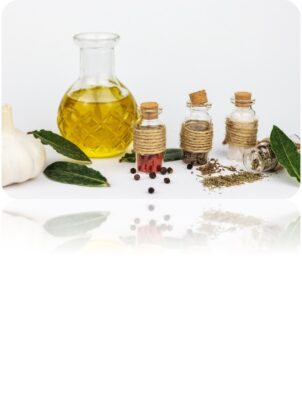 You can also soak a cotton ball and place it near your bed, or in your purse. This can be particularly helpful to pregnant women or any other person experiencing nausea when they inhale a cotton ball soaked with peppermint oil or other anti-emetic essential oil.
You can also soak a cotton ball and place it near your bed, or in your purse. This can be particularly helpful to pregnant women or any other person experiencing nausea when they inhale a cotton ball soaked with peppermint oil or other anti-emetic essential oil.
Another method is steam inhalation, which involves placing a few drops of oil in a bowl of steaming water, placing a towel over your head and breathing in the vapors that way.
To relax your mind and body at bedtime, you can place a few drops onto your blanket, and linens.
Diffusing through the air with natural evaporation is a method by which you simply place 10 – 15 drops of the chosen oil in a bowl of hot water that has been salted with either Epsom salts or sea salt, which help with the diffusion process throughout the night.
Other ways of achieving this method are by the commercially made and produced terra cotta bowls that are designed specifically for diffusing essential oils, or by soaking a cotton ball in the oil of your choice and placing it by your bed overnight (this is probably better for the very pungent or overpowering oils but is not quite as effective as the other natural diffusion methods listed above).
Essential oils are also infused into candles which gradually release the oils into the air as the candle burns. Essential oils candles don’t allow you to control the concentration of the oils like misters do, and while they don’t require you to have essential oils on hand, they do obviously involve and open flame which can be its own problem around children and pets. Some companies do make essential oil wax melts, however, which may be better for houses with small bodies.
Essential oils are often used for massage by mixing them with carrier oils, such as Jojoba, olive or almond oils that are safe for topical use. The dilution of essential oils is very important because undiluted essential oils can irritate the skin. Essential oils can also be used topically by putting a few drops in a tub of bath water.
Some essential oils are also marketed for ingestion.
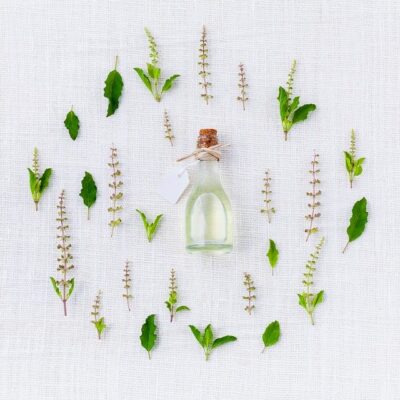 The two main ways to take essential oils orally are diluted in a glass of water or in a capsule, usually blended with other oils. Not all essential oils are safe to be ingested, and dilution is even more important when ingesting essential oils.
The two main ways to take essential oils orally are diluted in a glass of water or in a capsule, usually blended with other oils. Not all essential oils are safe to be ingested, and dilution is even more important when ingesting essential oils.
Some studies have also shown that some chemicals found in essential oils can collect disproportionately in some organs, especially organs of filtration like the kidneys, so talk to your doctor before looking into ingesting essential oils in this way, especially if you have had medical problems with your kidneys or liver.
Essential oil capsules aren’t widely available. It doesn’t help that the Food and Drug Administration recently issued letters of warning to several makers of essential oils for ingestion because of possible toxicity cases. Still, essential oil ingestion can be done safely with the right research and the right product. Most people who take essential oils as capsules make their own capsules out of essential oils and empty gel capsules that can be bought fairly easily. An upside of this process is that if you take any other oils for your health, filling your own capsules can be a good way to take in more of your daily oils at once.
12 Oils To Reduce Stress And Anxiety
Listed below are brief entries about recent studies conducted on essential oils that can be easily bought from health and wellness stores, or sometimes even big-box stores. Most of the entries will also give you some information on how best to use the essential oils – whether through aromatherapy, message and others.
The entries do not include dosage information, as this can vary based on how and where you want to use the essential oils. For doping information, look for instructions on the packaging, consult an expert, or do further research.
Orange
A 2018 study conducted in Brazil found that mice who were exposed to orange essential oils as a mist in the atmosphere showed more social tendencies than a control group. This study suggests that orange essential oils, especially in mist form, may decrease symptoms of anxiety and depression. It is difficult to suggest a dosage for humans to potentially experience the same effect, however.
Basil/Linalool
A 2010 study published in the journal Phytomedicine found that inhaling mist containing linalool reversed symptoms of anxiety in mice.
Linalool is a chemical found in a number of plants and essential oils, but which can also be isolated from those oils. Linalool is a key chemical in Basil, and a 2008 study published in the journal Food Chemistry said that other chemicals in Basil had a synergistic effect on linalool, meaning that it may be more beneficial to get your linalool from a more complex source – like basil essential oils.
Sweet Orange
Slightly different from regular orange essential oils, essential oils from sweet orange diffused through a mister showed to calm study participants better than a control group according to a 2012 study published in The Journal of Alternative and Complimentary Medicine. While the authors of the study point out that they recommend further research, this study – unlike the previous study – was conducted on humans.
Lavender
 According to a 2008 meta-analysis published in the American Journal of Critical Care, studies involving lavender essential oils used in massage have often yielded positive results in terms of anxiety management, but only when used for massage – studies involving lavender aromatherapy showed no changes in anxiety symptoms.
According to a 2008 meta-analysis published in the American Journal of Critical Care, studies involving lavender essential oils used in massage have often yielded positive results in terms of anxiety management, but only when used for massage – studies involving lavender aromatherapy showed no changes in anxiety symptoms.
As mentioned above, some people are skeptical of the role that essential oils play in the benefit of massage – after all, maybe the massage is doing all of the work.
Fortunately, lavender is one of the most studied essential oils out there, and they don’t always use massage. A 2009 study conducted in the United Kingdom found that taking lavender essential oils in a pill helped to sooth participants who were watching anxiety-inducing footage. This study also had a control group who took a placebo and did not experience the same anxiety reduction. If it wasn’t a massage and it wasn’t a placebo, it must’ve been the lavender.
Shell Ginger
Another plant that sounds like a familiar food but isn’t quite the same is shell ginger. According to a 2010 study published in the journal Natural Product Communications, essential oils from this plant helped to decrease anxiety symptoms in mice when taken as a mist.
While this essential oil is available on the market it is not one of the more common selections, and the authors of the 2010 study pointed out that we still don’t know as much about how this essential oil is distributed through various tissues as we perhaps should.
Damask Rose
 A 2012 study conducted in Iran on over 100 women suffering from anxiety due to pregnancy found that aromatherapy and the use of damask rose essential oils for foot baths significantly decreased anxiety symptoms. That is compared to a control group who did not receive aromatherapy, and who got footbaths with water not treated with essential oils.
A 2012 study conducted in Iran on over 100 women suffering from anxiety due to pregnancy found that aromatherapy and the use of damask rose essential oils for foot baths significantly decreased anxiety symptoms. That is compared to a control group who did not receive aromatherapy, and who got footbaths with water not treated with essential oils.
Propolis
Propolis is an essential oil that you might not have heard of. It’s not made from plants, but it comes from plants – it’s made by bees but isn’t the same as honey.
A 2010 study published in the journal Human and Experimental Toxicology found that propolis essential oils reduced symptoms of anxiety in mice.
This study has some setbacks when it comes to propolis and humans. For one thing, it was conducted on rats. It was also injected, which isn’t how humans take essential oils. The study did do one exciting thing, however: it measured the levels of stress hormones in the blood of the mice to quantifiably prove that the oil was working.
Lemongrass
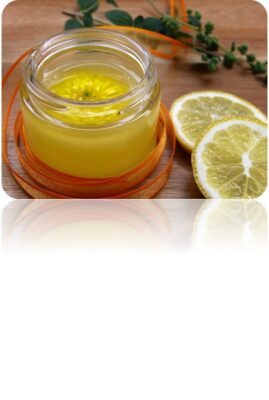 Interestingly, a 2011 article published in The Journal of Ethnopharmacology found that lemongrass essential oils decreased symptoms of stress and anxiety in mice and also monitored levels of neurotransmitters in their blood. Neurotransmitters aren’t exactly the same as hormones, but they carry out similar functions.
Interestingly, a 2011 article published in The Journal of Ethnopharmacology found that lemongrass essential oils decreased symptoms of stress and anxiety in mice and also monitored levels of neurotransmitters in their blood. Neurotransmitters aren’t exactly the same as hormones, but they carry out similar functions.
This is interesting because they found that the blood levels of neurotransmitters in their blood didn’t change. While this raises interesting questions about exactly how lemongrass helps to relieve symptoms of anxiety and depression, it may also suggest that lemongrass essential oils can be used in addition to other essential oils for compound benefit.
While this article looked at the effects of lemongrass essential oil vapor, a study conducted two years earlier and published in the journal Phytomedicine studied a tea made with lemongrass essential oils had a calming effect and also increased sleep time. Unfortunately, this study was also conducted on mice.
Lemon essential oil is described below, though lemon and lemongrass essential oils are not the same thing. Be aware that while most people enjoy the smell of lemon, not everyone enjoys the scent of lemongrass.
Lemon
Not to be confused with lemongrass, lemon essential oils have their own healing properties.
According to a 2011 study conducted in Brazil, essential oils from the leaves of the lemon plant have the rare quality of decreasing symptoms of both anxiety and depression. This study, conducted on mice, involved oral application of the essential oils.
While some people do take a drop of lemon essential oil in a glass of water, many people are skeptical of this practice. Fortunately, lemon essential oils can also be used in aromatherapy. There are also special topical products made from lemon essential oils, and lemon essential oils are used in many cleaning products.
Lippia Alba
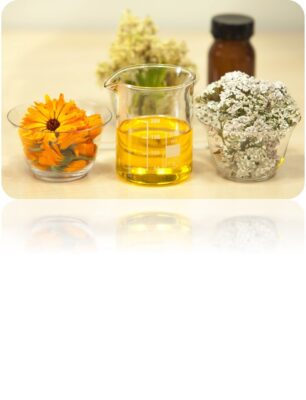 This plant may be new to many readers, but in parts of South and Central America it is widely known and is used as a tranquilizer.
This plant may be new to many readers, but in parts of South and Central America it is widely known and is used as a tranquilizer.
A 2012 study conducted in Brazil, however, found that small volumes of an essential oil made from this plant don’t act as tranquilizers but do help to decrease symptoms of anxiety.
Unfortunately, this study was conducted on mice and via injection. That doesn’t mean that you shouldn’t try this essential oil, however, as it can be made into a tea.
Yarrow
There are a number of yarrow plants used for essential oils, though all of them have the same key chemical, fragranol. According to a 2012 study published in the journal Food and Chemical Toxicology, this chemical reduces symptoms of anxiety.
Interestingly enough, the study also points out that rather than positively influencing our brain chemistry like other anxiety fighting essential oils, the calming effects of yarrow may be more similar to intoxication. While the authors of the study may have a negative view of yarrow essential oils, they are still widely available.
Bergamot
A 2013 study conducted in China found that patients were less anxious about upcoming surgery when they engaged in aromatherapy using bergamot oil in a mister.
18 More Great Oils For Stress Management
 Cinnamon Leaf
Cinnamon Leaf- Cedarwood
- Lime
- Grapefruit
- Eucalyptus
- Orange
- Sandalwood
- Ylang Ylang
- Clary Sage
- Jasmine
- Frankincense
- Peppermint
- Copaiba
- Tea Tree
- Marjoram
- Bitter Orange
- Chamomile
- Geranium
As the popularity of essential oils has grown, however, an increasing amount of research has gone into them. There is a shocking amount of research out there on essential oils that are not yet commercially available, but which show promise in alternative medicine practices, alongside well-known essential oils like lavender, chamomile and lemon.
Essential Oils Best Practices
If you’re just getting started with essential oils, it might be best to stay with essential oil products like candles, wax melts, and bath products rather than using essential oils directly. You should also take care to notice how you feel as you start using essential oils for aromatherapy if you have asthma or other breathing complications.
According to the American Academy of Allergy, Asthma and Immunology, some people find that concentrated essential oils can trigger their symptoms. Many misters will allow you to control how diluted you make the oils and diluting them more than recommended may help you to get the benefits of essential oils without the side effects.
If you have pets, you should watch for their reactions as well. We don’t really know yet how all of the different kinds of essential oils impact different kinds of animals but what might be a low concentration for your great big human lungs might impact your dog, cat, or bird a bit differently.
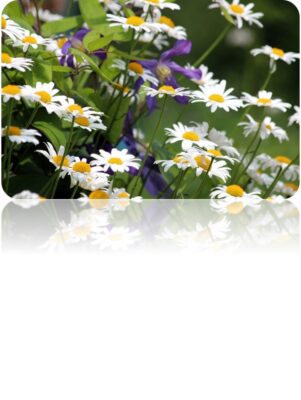 Further, the American Society for the Prevention of Cruelty to Animals recommends keeping your concentrated essential oils in a place where your animals can’t get to them. Just like concentrated essential oils can irritate our skin, it can impact animal paws as well – and what might be out of reach of your child might not be out of reach for your cat.
Further, the American Society for the Prevention of Cruelty to Animals recommends keeping your concentrated essential oils in a place where your animals can’t get to them. Just like concentrated essential oils can irritate our skin, it can impact animal paws as well – and what might be out of reach of your child might not be out of reach for your cat.
If you want to use essential oils for massage or other topical uses, be sure to get essential oils meant for that use and follow directions on the label. Some essential oils are strong enough to irritate the skin if not properly diluted.
While some people are concerned about potential dangers of essential oils during pregnancy or while breastfeeding, most essential oils – when used correctly — seem to be safe for infants and developing fetuses. Infact, studies have been conducted on using essential oils to ease post-partum depression, and some sources recommend using essential oils in massage to ease discomfort during pregnancy. NAHA recommends avoiding essential oils made from wormwood, rue, oak moss, lavender, camphor, parsley seed, sage, and hyssop.
If you have any other questions about essential oils, carry on doing your own research, but also bring up your interest in essential oils with your primary care provider.
While not all doctors are going to be as energized about essential oils as you might be, they will be able to direct you towards more resources and probably some good essential oils suppliers. They can also help to make sure that you are taking your essential oils in the safest and most beneficial way possible.
Talking to your primary care provider is also important because in the studies cited above the essential oils were found to reduce symptoms but not to address the underlying cause of the anxiety or depression. Essential oils can help people without clinical anxiety or depression to feel less anxious or depressed, or they can help people with clinical anxiety or depression in combination with other treatments, but essential oils will not cure your anxiety or depression on their own.
Finally, a reminder that essential oils are only extracts from the plants, not something magical. While essential oils concentrate the healing properties of the plants, they are not always the only way to get those properties. Explore the use of the essential oils below but when you come across a familiar plant consider incorporating more of it into your diet as well.
Essential oils are also not magical in that smelling lemon probably won’t be enough to cure your depression or anxiety. By all means explore using the essential oils below but be aware of their limitations as you do so.
Final Thoughts
Warnings in this article and other sources to do things like dilute your essential oils properly and to gradually get into the practice to know how different oils will affect you shouldn’t turn you off from the idea of getting into essential oils.
Far from being the new fad that it is easy to mistake them for, essential oils have been around for thousands of years and most people using them prope
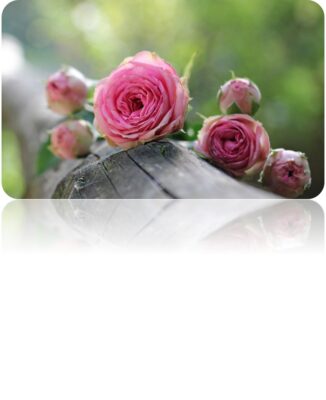 Essential oils – concentrated oils extracted from plants – are a pretty big conversation topic right now in just about every field that touches on human health and wellness. From food packaging and preparation to sanitization and sports medicine, but perhaps mostly mental wellness, there is a huge and growing body of research on how to essential oils benefit human health.
Essential oils – concentrated oils extracted from plants – are a pretty big conversation topic right now in just about every field that touches on human health and wellness. From food packaging and preparation to sanitization and sports medicine, but perhaps mostly mental wellness, there is a huge and growing body of research on how to essential oils benefit human health.
For all of their other amazing properties, much of the research – and most of the marketing – related to essential oils has been about their potential ability to help people reduce stress and anxiety, mostly through aromatherapy, massage, or a combination of both.
There’s a lot to talk about when it comes to essential oils, and this article is going to try to address some of the key things that you need to know to get started using essential oils for help with symptoms of anxiety and depression.
Disclaimer: The content of this post is for informational purpose only and is not intended as medical advice. Medical advice should always be obtained from a qualified medical professional for any health conditions or symptoms associated with them. Every possible effort has been made in preparing and researching this material. We make no warranties with respect to the accuracy, applicability of its contents or any omissions.

